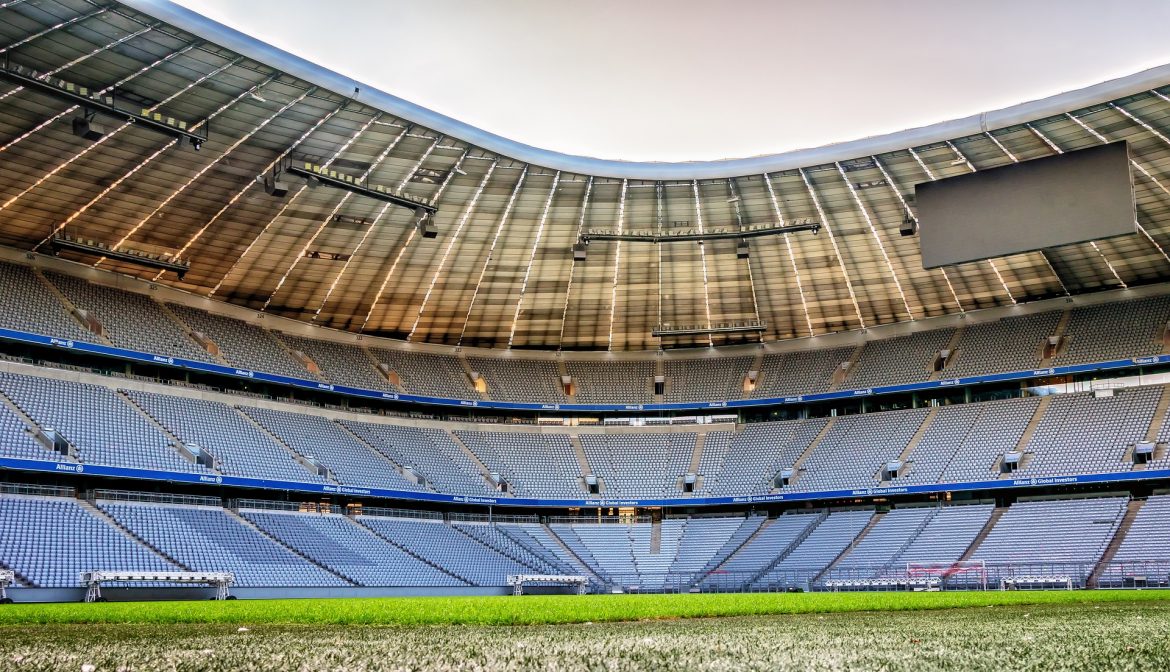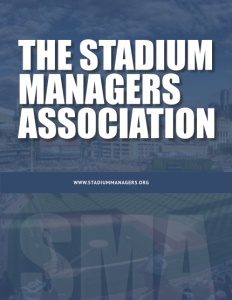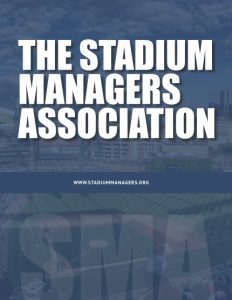Business View Magazine interviews Tony Pereira, President of the Stadium Managers Association, as part of our series on great American venues.
The Stadium Managers Association (SMA) is a networking organization dedicated exclusively to stadium operations. Its members include administrators and operations personnel from professional sports teams, stadium managers and other authorities from private and public sports facilities, colleges and universities, and suppliers to the industry. It is a member driven association where stadium managers and vendors collaborate on issues and solutions that enhance the safety, profitability, and service of their facilities. “It’s the group you want to be a part of,” says Tony Pereira, President of the SMA and Vice President for Operations at Safeco Field, home of the Seattle Mariners. “This is where the people come together to do the best job that they can for their companies and their buildings.”
The first informal gathering of what was to become the Stadium Managers Association was held in a motel conference room in Memphis, Tennessee in January 1974. “It started off as a meeting of a group of stadium managers who didn’t have a place to meet, or a group to meet with,” Pereira recounts. “So, a few of them got together to talk about common issues and practices. It didn’t formally become an association until 1991.”
The first Stadium Seminars were organized in the early 1980s, by Colonel Robert Sigholtz, formerly with RFK Stadium. The meetings were informal with the stadium managers leading the discussions and participating in panels, with an occasional industry related lecturer invited. Today, they are major events, held yearly, providing vital sources of information, guidelines, and resources for the unique stadium industry. “It’s come a long way in 43 years,” says Pereira. “This past year, we were in Huntington Beach, California and we had over 400 attendees, from stadium managers to corporate partners, to students and faculty members who are involved with stadium administration programs at their schools.”
Pereira enumerates the SMA’s threefold objectives: “Network, educate, and involve. The networking is the primary function of the Association and it’s what our members tell us they value the most – the chance to get together, whether it’s on the phone or in person, and just share best practices, ask each other their questions, and develop those relationships – not only between the stadium managers, but also the corporate partners.”
Corporate partners are an essential part of the SMA community. “We have a number of long-term corporate partners who manufacture and sell everything you would need in a stadium,” Pereira explains. “Starting from the design, you have architectural firms and engineers and construction companies; on into lighting and playing surfaces; seating, staging, security, concessionaires – the list goes on and on. So, it’s an opportunity to connect the stadium managers with these partners they will need when it comes to building a new stadium, or renovating a stadium; they will have those relationships and know who to call when the need arises.”
“As far as educating,” Pereira continues, “when we get together at a Seminar, we try to put on a robust program to touch on a lot of different areas, so stadium managers can stay abreast of the latest trends, the latest, best practices. And we bring in the resources we’ve been able to partner with to provide that in real time; then, when things come up, electronically. We can shoot out emails and webinars to make a 365-day-a-year engagement with the membership.
“We also reach out to colleges and universities that have sports management and sports administration programs. We reach those who are interested in the field, interested in the industry and give them exposure to it. They get on the mailing list for our monthly, electronic newsletter; they have access to our directory, so they get the names and numbers of everybody in the Association if they want to reach out to people. They can come to the Seminar and sit in the sessions and network with the members. It gives the young people an opportunity to get a close look at what they might be interested in as a career.
“Lastly is involve: that is simply to give members an opportunity to be involved with the Association, whether it’s on a committee, or the Board of Directors – however they want to help or get involved. And we’re constantly working to expand our membership – the more people involved the better for our corporate partners and better for our members. We focus on making sure [prospective members] recognize the value, and stress that we are the only association in the industry exclusively focused on stadium concerns. We push the fact that this is where you meet the companies that you’re going to do business with, that you’re going to need, and here’s a chance to get together in a social situation and form relationships that can become friendships. Certainly, buildings and managers can go it alone, but in my career, I have found that being a part of this – it’s just invaluable.”
Pereira mentions two current items on SMA’s agenda. One involves broadening its reach beyond its current American and Canadian membership. “We are talking with a group outside the U.S. right now, that has extended the invitation to come and partner with them,” he reveals. “It’s something that we’re very much interested in because when you look at Europe, for example, they also have a lot of interesting buildings being built; they have technologies that are emerging. And you want to have your eyes open to everything. We’re most familiar with our own practices and our own buildings, however, across the water, there’s some interesting stuff going on, too.”
The second item involves broadening opportunities within its current membership. “We’re making a push to get more female stadium managers involved,” Pereira says. “We have a Female Manager Initiative, which we unveiled at our last Seminar. The female membership group got together in their own session to talk about their issues and their concerns and how to get more involvement in that segment of our membership. I think that’s important, because we do see it on the collegiate level: you have more young ladies who are interested in sports management. In the ‘olden days,’ it was definitely a more male-dominated field. So, it’s something that we’re excited about.”
Pereira believes that, today, the SMA is enjoying a golden era after a brief period during the Great Recession when budgets were tight and membership dipped, somewhat. “Right now, our membership with stadium management and on the corporate side – we’re pushing records,” he declares. “People are engaged; they’re coming to the Annual Seminar. And what you’re seeing is a trend in the industry: with more and more new buildings and renovations, lots and lots of money is being spent. And with those dollars comes the responsibility to spend them correctly; to build buildings that are sustainable, using technology to make the most efficient use of people’s budgets. The Association helps people do their job in the most efficient and effective way they can.”
The SMA’s future looks bright, as well. Pereira concludes: “I think there’s always going to be a need for that clearing house that pulls the information together from a number of different sources and makes it easier for the stadium manager to have those resources, and see those trends, and have those partnerships. We want to be that leading group that you turn to as a resource for information and networking. It’s been 43 years and we’ve been very successful. So, I see us continuing what we’re doing.”
AT A GLANCE
WHO: The Stadium Managers Association
WHAT: A networking organization dedicated exclusively to stadium operations
WHERE: West Des Moines, Iowa
WEBSITE: www.stadiummanagers.org




